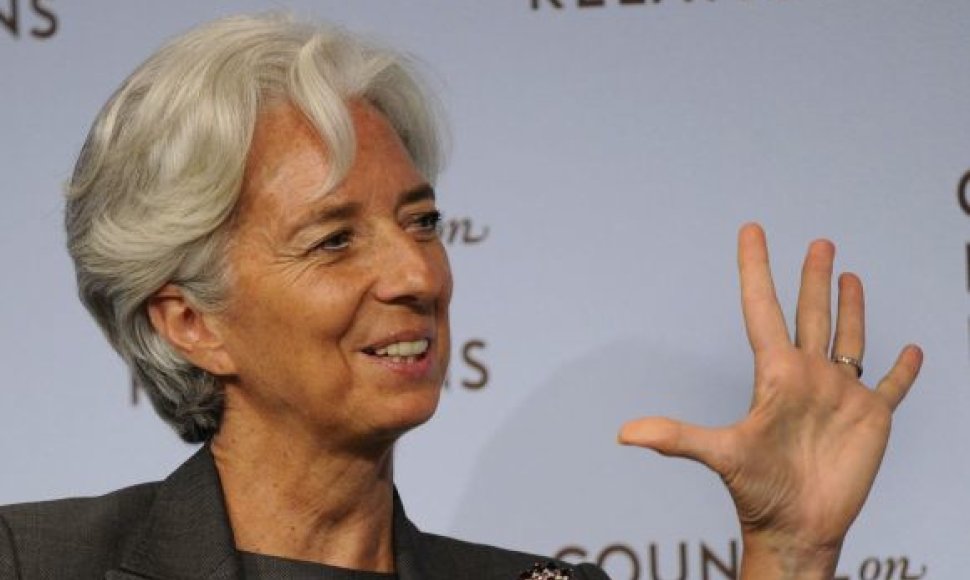"When we look at those numbers, back in 2009, and what has been accomplished in a matter of three years, it’s just staggering… It has been a huge effort and huge courage… Clearly what has been demonstrated by Lithuania was the courage and the determination to pull out of the crisis by themselves," she said at a round table discussion hosted by Vilnius University on Thursday.
Lagarde commended former Prime Minister Andrius Kubilius for his achievements.
"I would like to recognize the enormous effort that has been undertaken by Lithuania back in 2009. And I would like to acknowledge Prime Minister Kubilius for attending this lecture - thank you very much for being here and I would like really much to recognize these efforts," she said.
The IMF chief said that it was irrelevant whether the country then borrowed from the fund or not "because what matters is the outcome."
"[... ] what has been done by one country, no matter how big or how small it is, can certainly be used as standard setting… We were often reminded of the efforts undertaken by Lithuania as something that could be done," she said.
The IMF chief warned Lithuania's authorities that it was important "to hold on to the hard-won gains in competitiveness and public finances".
Finance Minister Rimantas Šadžius said during the discussion that Lithuania needed to pursue policies aimed at creating new jobs, in particular those of higher added value.
Šadžius said that Lithuania would need not only "Silicon Valleys", but also well-paid, highly-qualified jobs.
"Lithuania has almost no natural resources except one - it's our intellect, our human resources. This is what should be important for Lithuania to compete in the world, because in a single market there's competition everywhere. Highly paid jobs, which need a huge educational level, are required to provide services in the IT sector, pharmaceuticals," he said.
Meanwhile, Joerg Asmussen, a member of the European Central Bank's executive board, called for opening up closed labor markets.
"Like in Italy, where it has to open closed professions," he said, adding that such structural reforms would bring "a double dividend".
Vitas Vasiliauskas, the Lithuanian central bank governor, underlined the importance of federalism for a monetary and economic union.
"I believe that fiscal federalism is Europe's future. This is my personal opinion. There has been a lot of discussions on this issue, but don't see how the economic and monetary union can survive without federalism," he said.
Several hundred people, including politicians, bankers, business people and students, attended the round table discussion on European Economic Integration: Stock Taking of Challenges and Possibilities, which was organized by the Bank of Lithuania.












